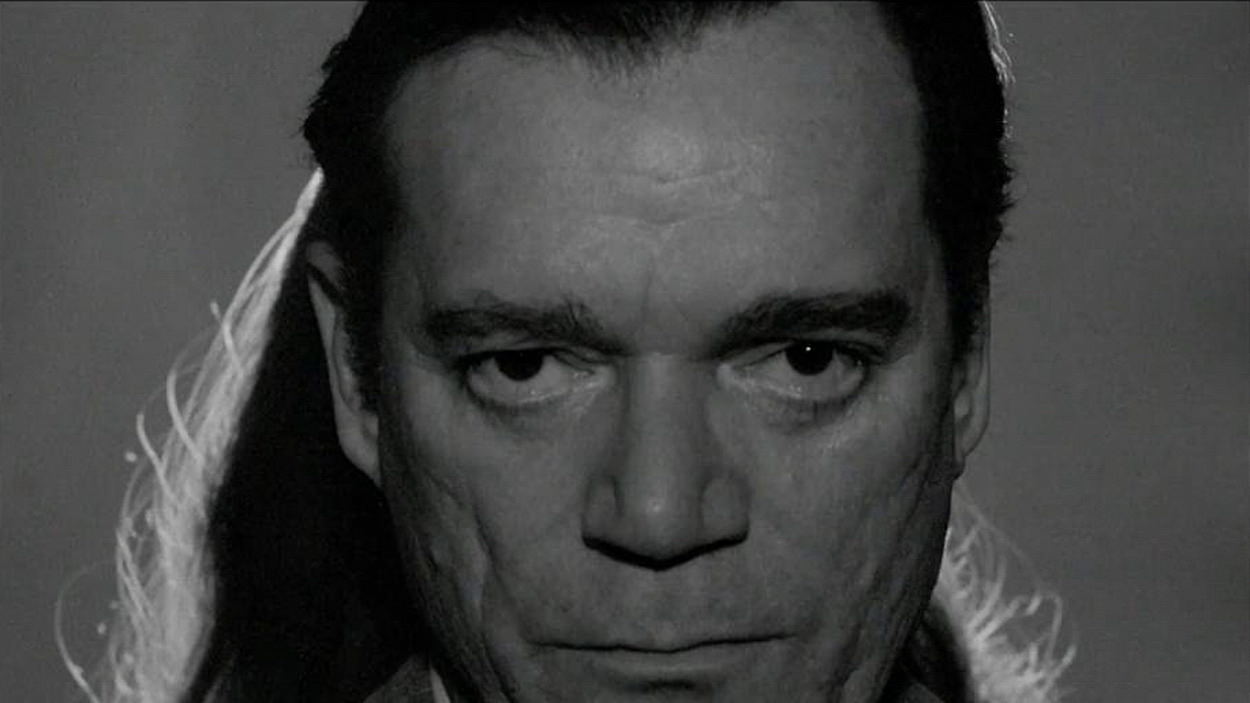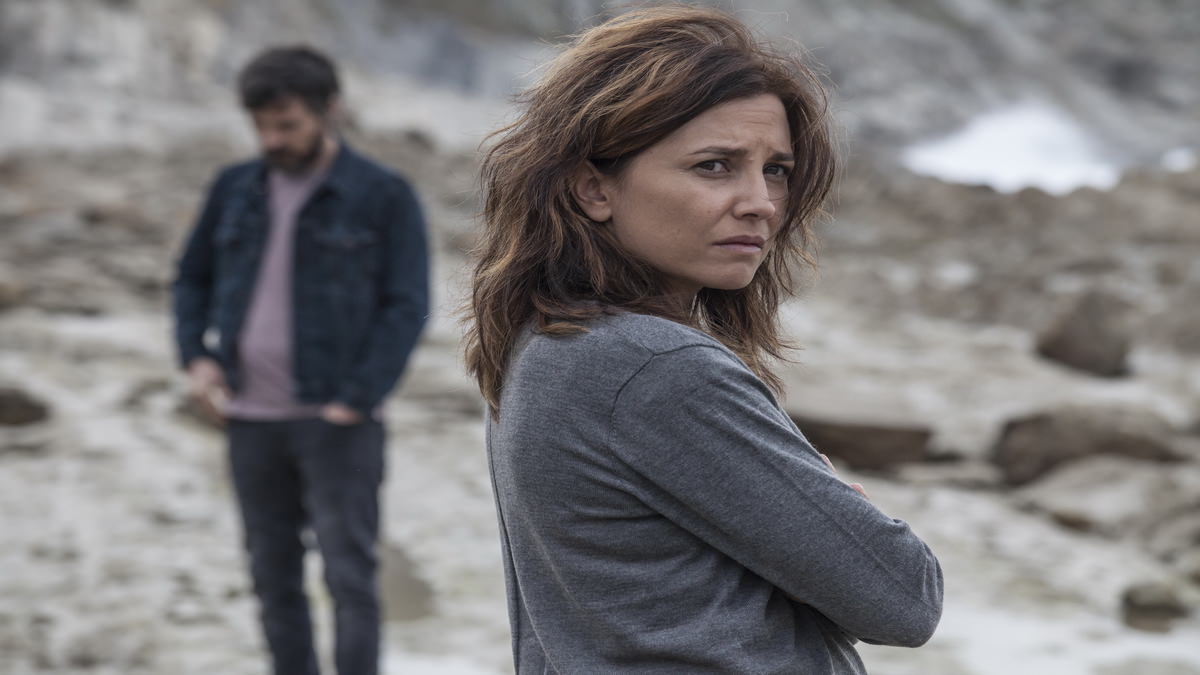LAS PELÍCULAS DE MI VIDA, POR BERTRAND TAVERNIER (2016) de Bertrand Tavernier

“Un viaje a través de 50 años de cine francés”
Por una vez, y sin que sirva de precedente -ya pasó con Leone y su “La muerte tenía un precio”-, el título en castellano es más exacto que el original (“Voyage a travers le cinèma français”), no porque el francés tenga pega alguna -de hecho, el film es un viaje- sino porque hace pensar en trabajos de historiador cuando, en realidad, es un discurso en primera persona donde su director nos cuenta sus descubrimientos, su evolución, su vida. Presentada en los Festivales de Cannes, San Sebastián y Sant-Jordi/Barcelona, la película de Tavernier interesa por dos razones. Una, porque nos cuenta cómo alguien tan sabio como él es capaz de transmitirnos sus experiencias, a veces una especie de guiño para iniciados. Dos, sencillamente porque vemos imágenes de films que conocemos o no, que hemos visto en pantalla grande o sólo en televisores de contadas pulgadas (una cadena televisiva dedicó un ciclo al enorme Jacques Becker y anunció “Dernier atout” como “El último en todo”, cuando “atout”, así todo junto, significa apuesta, es decir, “Última apuesta” es la traducción correcta de un film inédito en las salas españolas). Becker, Sautet, Melville, Carné, Renoir, etc… Son repasados por un Tavernier que nos cuenta su paso por la adolescencia, su descubrimiento del cine, su condición de “attaché” en su primera juventud, las sensaciones que transmitían esas imágenes, los contenidos y formas rabiosos que, de ser entendidos, capaces son de cambiar las vidas de los humanos.
Por eso y por mucho más ese “Voyage” es toda una lección de vida, de sentido de la vida, sea la de Bertrand Tavernier, sea la de los miles de espectadores que vean su fabuloso film. Cine capaz de cambiar la vida, casi nada. Uno ve imágenes, generalmente en blanco y negro, pero también las hay en color, que suponen toda una invitación, una provocación, para ver o volver a ver el film citado. Para darse cuenta de que, comparados con esos magistrales relatos, muchos films, cineastas y espectadores parece que no quieren cambiar de vida, que sus obras reniegan de sus conocimientos, que sus conocimientos carecen de sentido común. Hay que ver el film de Tavernier, no con el respeto que parece transmitir a priori, sino con el respeto de uno mismo, de sus propias vivencias, de su divisa, como decía el maestro José Giovanni, amigo y contratador de Tavernier, presente en el recorrido que nos presenta Bernard, de las verdaderas ganas de disfrutar y aprender, de aprender disfrutando, que tenga y quiera tener ese espectador a quien Bertrand dedica su film. Y cierro con dos citas, una de Pepe Ridoutt, cineasta y programador peruano, que en Cannes vio el film y me aseguró que: “su metraje pasa en un vuelo, posibilitando nuestro deseo de que no termine nunca”. La otra es del propio Bertrand Tavernier y nos la espetó en Barcelona en la presentación del film: “Y admiren a los músicos, los compositores, quienes son los primeros críticos que ven la película para añadir la música a las imágenes”.
Ah, para disfrutar plenamente de un film como éste, de sus dos -y más- líneas de lectura y aprendizaje, no hace falta ser un amante del cine. Basta con querer serlo.
Nuestra calificación: (5/5)
“A journey through 50 years of French cinema”
For once, and without being a precedent – already happened with Leone and his » For a Few Dollars More», the title in Castilian is more exact than the original («Voyage a travers le cinèma français»), not because the French has some failure- in fact, the film is a journey – but because it makes you think of works of historian when, in fact, it’s a speech in first person where its director tells us his discoveries, his evolution, his life. Presented at the Cannes, San Sebastian and Sant Jordi / Barcelona Festivals, Tavernier’s film is interesting for two reasons. One, because it tells us how someone as wise as he is be able to convey his experiences, sometimes a kind of wink for initiates. Two, simply because we see images of films that we know about or not, that we have seen on the big screen or only in televisions of few inches (a television programmed a cycle of the great Jacques Becker and announced «Dernier atout» like «The last one in everything», when «atout», thus all together, means bet, i.e. «Last bet» is the correct translation of an unrelased film in the Spanish cinemas). Becker, Sautet, Melville, Carné, Renoir, etc… They are reviewed by a Tavernier who tells us about his teenage years, his discovery of cinema, his condition of «attaché» in his early youth, the sensations transmitted by these images, contents, and rabid forms that are capable of changing the lives of humans.
For that reason and for much more that «Voyage» is a whole lesson of life, of meaning of the life, be the one of Bertrand Tavernier, or the one of the thousands of viewers who see his fabulous film. Cinema capable of changing life, almost nothing. One sees images, usually in black and white, but there are also images in color, which involve an invitation, a provocation, to see or see the film again. To realize that, compared to these masterful stories, many films, filmmakers and spectators don’t seem to want to change their lives, that their works deny their knowledge, that their knowledge lacks common sense. Tavernier’s film must be seen, not with the respect it seems to convey, but with the respect of oneself, of his own experiences, as said Maestro José Giovanni, friend and contractor of Tavernier, present in the “route” that Bernard presents us, the real desire to enjoy and learn, to learn to enjoy, that must have and want to have that viewer that Bertrand dedicates his film. And I finish with two quotes, one by Pepe Ridoutt, a Peruvian filmmaker and programmer, who in Cannes saw the film and assured me that «his footage goes like a flight, making possible our wish never to end.» The other is from Bertrand Tavernier himself and he tell us in Barcelona in the premiere of the film: «And admire the musicians, the composers, who are the first critics who see the film to add music to the images».
Ah, to fully enjoy a film like this, its two – and more – lines of reading and learning, you don’t need to be a cinema lover. Just wanting to be.
Traducido por: Eduardo Llorente.
Our rating: (5/5)





